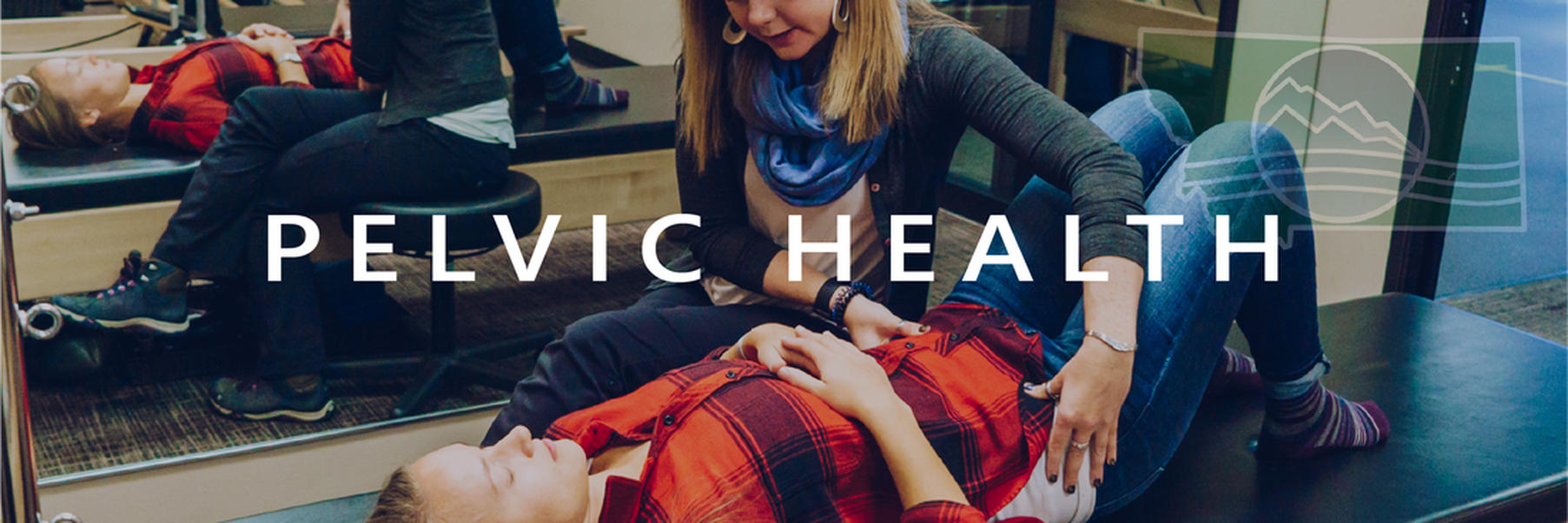Pelvic Health: Physical Therapy for Every Body
The pelvic floor is a unique series of muscles that require a novel treatment approach. Dysfunction of these muscles can lead to issues in the bowel, bladder, sexual function, as well as pain in the pelvic region. Specialized treatment for the pelvic region, including the pelvic floor muscles, can help you achieve greater comfort and return to your desired function.
Our pelvic health specialists have attained specialized training through additional education and clinical practice to help them meet the unique pelvic health needs of all genders. Their compassion for quality care makes them a well-recognized leader in providing pelvic health services in the Missoula area. |
Pregnancy and Postpartum Care - Alpine Afternine
Our postpartum care program, Alpine AfterNine, is there for you in the early stages of motherhood. From birth recovery to chasing toddlers, let us take care of you so you can take care of them.
Pregnancy is a time of discovery, growth, and transformation. During the 40 weeks of pregnancy a woman’s body will undergo both physical and hormonal changes. These changes are normal and natural but they can also lead to dysfunction or pain. We can help with low back pain, pelvic pain, and other pain presentations during pregnancy. We can also provide valuable information on preparations for childbirth such as labor positions, pushing techniques, and other pain relief during the laboring process.
Conditions we treat
|
Urinary Incontinence
Pelvic Organ Prolapse Urinary Frequency and Urgency Fecal Incontinence Constipation Diastasis Recti C-section or Perineal Scar Pain Pubic Symphysis Dysfunction |
Sacroiliac Joint Dysfunction
Coccyx Pain Pain with sex Post Prostatectomy Rehab Nonbacterial Prostatitis or Male Chronic Pelvic Pain Pudendal Neuralgia and/or Chronic Pelvic Pain Syndrome Abdominal and/or Genital Pain |
This list is not comprehensive. Please contact us to see if we can help you with your pelvic health needs.
Meet Our Team
Treatment Techniques
Rehabilitative Ultrasound imaging (RUSI)
RUSI is an evidence-based technique that trained physical therapists can use to visualize muscles and more accurately assess the origin of musculoskeletal pain and dysfunction. RUSI is a noninvasive tool that utilizes the same safe technology used for monitoring pregnancy, only at different frequencies.
Dynamic real-time (video) images are generated that allow patients to see how their muscles function in action. RUSI may be helpful with the treatment of many different conditions including back pain, pelvic pain, hip and groin pain, post-partum rehabilitation, incontinence, as well as patients who have healed from an abdominal surgery.
Alpine is the few places in Western Montana where RUSI is available as a diagnostic technique.
Dynamic real-time (video) images are generated that allow patients to see how their muscles function in action. RUSI may be helpful with the treatment of many different conditions including back pain, pelvic pain, hip and groin pain, post-partum rehabilitation, incontinence, as well as patients who have healed from an abdominal surgery.
Alpine is the few places in Western Montana where RUSI is available as a diagnostic technique.
Surface Electromyography (SEMG) Biofeedback
Surface Electromyography (SEMG) Biofeedback is a helpful form of treatment for various forms of pelvic floor dysfunction. Surface electrodes are placed on the skin to detect the voltage changes within the muscle. This information can be viewed on a computer screen so patients can visualize their pelvic floor function. While SEMG biofeedback does not directly measure strength, it can allow individuals to visualize muscular activation when they are contracting . This can be used for pelvic floor strengthening to treat urinary and fecal incontinence as well as pelvic floor relaxation training to treat pelvic pain and constipation. SEMG is a noninvasive and safe technique to improve pelvic floor muscle function.
What Should I expect from my first visit?
Your pelvic health therapist will first discuss with you the primary reason for seeking physical therapy services. She will also review key elements of your past medical history. A thorough examination is done for the spine, hips and pelvis as appropriate. Your therapist will talk with you about your condition.
Notably, pelvic health physical therapists are specially trained in an internal evaluation of the pelvic floor. In the event an internal pelvic floor examination is warranted, she will educate you on why this would be beneficial for treatment. An internal exam allows your therapist to ensure that you are correctly recruiting and activating the proper muscles. Based on the results, your home program is then individualized for optimal results. Additionally, the internal exam alerts your therapist to whether there is over activity or tension present in the muscles. If so, your treatment may require that you start out with relaxation or muscle retraining prior to muscle strengthening.
Notably, pelvic health physical therapists are specially trained in an internal evaluation of the pelvic floor. In the event an internal pelvic floor examination is warranted, she will educate you on why this would be beneficial for treatment. An internal exam allows your therapist to ensure that you are correctly recruiting and activating the proper muscles. Based on the results, your home program is then individualized for optimal results. Additionally, the internal exam alerts your therapist to whether there is over activity or tension present in the muscles. If so, your treatment may require that you start out with relaxation or muscle retraining prior to muscle strengthening.
What is a Kegel?
A Kegel is synonymous with pelvic floor contraction. Its name comes from Dr. Arnold Kegel, a gynecologist whose research in the 1940’s led to the introduction of this set of exercises as an appropriate tool for the treatment of urinary incontinence. Activation of the key pelvic floor muscles is often done incorrectly, which can negatively impact the patient’s condition. Correct activation includes a squeezing and lifting of the perineal muscles inward without over working the gluteal or abdominal muscles. Working with your pelvic health therapist is critical to ensure that your technique is correct and finely tuned, resulting in successful resolution of your symptoms.
Can I come to PT while I'm on my period?
Yes. Menstruation does not get in the way of a pelvic health physical therapy initial evaluation or follow up appointments. Seeing what your muscles do while on your period can be helpful and physical therapy can decrease discomfort you normally feel. It is always up to you if you wish to defer any treatment you aren't comfortable with during your period.










